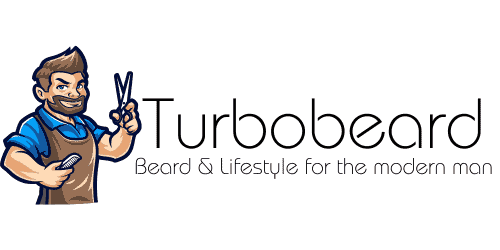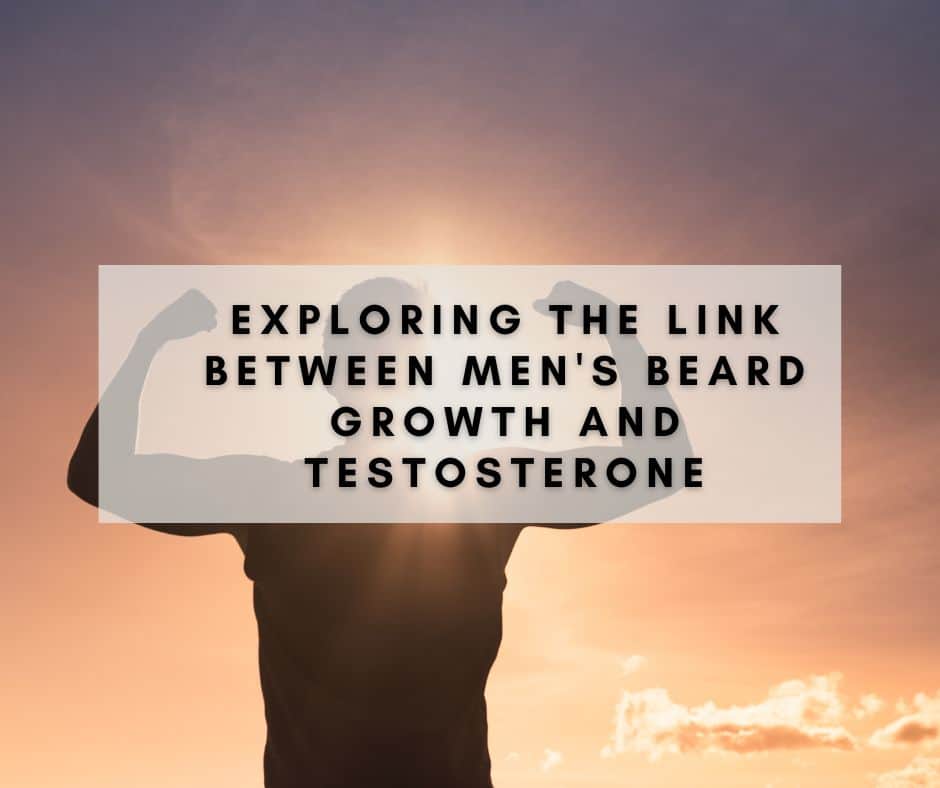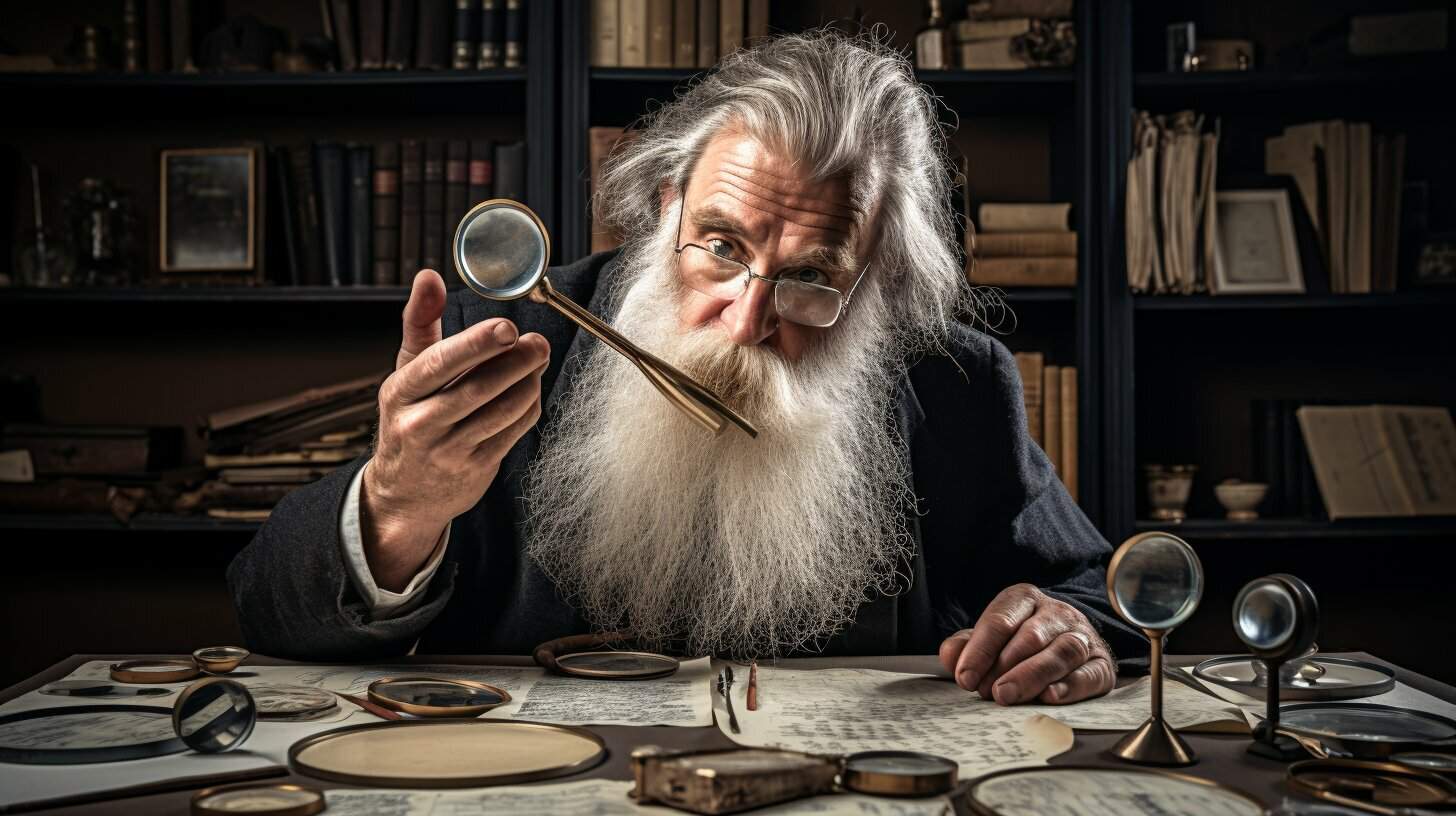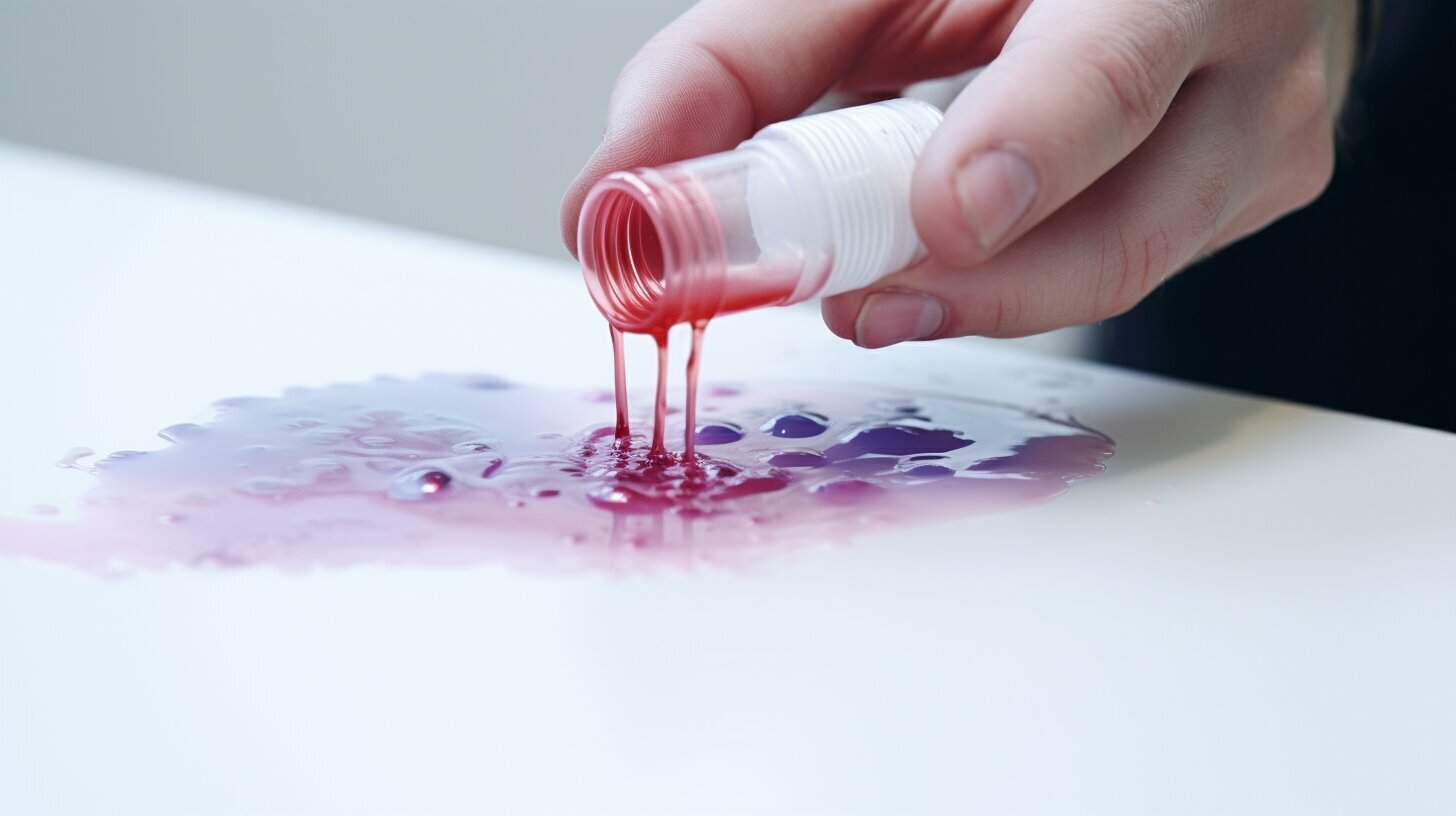For as long as men have been growing beards, a recurring question has arisen – Do bearded men have higher testosterone levels?
The response to this query often varies, with perspectives differing based on who you ask. Some staunchly believe that a dense beard is an undeniable indicator of elevated testosterone levels. On the contrary, others assert that there is no link.
So, what is the real deal here? As an individual who has dedicated years to researching and penning articles on testosterone and men’s health, I’m prepared to clarify this long-standing debate.
TL;DR
Testosterone plays a key role in beard growth, but having a thick beard doesn’t necessarily mean higher testosterone levels. Factors like genetics, overall health, and lifestyle also greatly influence beard growth. While beards are often culturally linked to masculinity, it’s important to note that beard growth is a personal choice and doesn’t always indicate higher testosterone levels or virility.
Contents
- 1 The Definition of Testosterone: It’s More Than Just a “Manly” Hormone
- 2 The Link Between Testosterone and Beard Growth: Yes, There Is One
- 3 The Question: Do Guys with Beards Have More Testosterone?
- 4 The Science Behind Testosterone and Beard Growth
- 4.1 How testosterone affects hair growth
- 4.2 The role of dihydrotestosterone (DHT) in beard growth
- 4.3 Other factors that affect beard growth
- 4.4 Beards as a Sign of Masculinity
- 4.5 Historical and cultural significance of beards
- 4.6 Perception of men with beards in modern society
- 4.7 How the perception of masculinity affects the desire for a beard
- 4.8 The Relationship Between Testosterone Levels and Beard Growth
- 5 Debunking Myths About Beards and Testosterone
- 6 Conclusion
The Definition of Testosterone: It’s More Than Just a “Manly” Hormone
Before we dive into the relationship between testosterone and facial hair growth, let’s make sure we’re all on the same page about what testosterone is. At its most basic level, testosterone is a hormone that plays an important role in male development and overall health.
It helps regulate everything from muscle mass to sex drive to bone density. But here’s the thing: testosterone isn’t just a “manly” hormone.
Women produce it too, albeit in much smaller amounts than men do. And while it’s true that higher levels of testosterone are generally associated with more traditionally masculine traits (like facial hair growth), it isn’t necessarily an indicator of someone being more “masculine” or virile overall.
The Link Between Testosterone and Beard Growth: Yes, There Is One
Okay, so now that we’ve got our definition sorted out, let’s talk about how exactly testosterone is related to beard growth. The short answer?
Yes, there is a link between the two. When you hit puberty (typically around age 12-14), your body starts producing more testosterone than it did before.
This uptick in hormone production is what triggers a lot of the changes we typically associate with puberty, including facial hair growth. Specifically, testosterone gets converted into dihydrotestosterone (DHT), a hormone that plays a key role in stimulating the growth of hair follicles.
But here’s where things can get tricky: just because someone has more testosterone in their system doesn’t necessarily mean they’ll have a thick, luscious beard. There are plenty of other factors that can affect how much facial hair someone grows, from genetics to overall health to simply being patient enough to wait for it all to come in.
The Question: Do Guys with Beards Have More Testosterone?
So here we are at the heart of the matter: do guys with beards have more testosterone? The answer is…it depends, not the answer you we’re looking for, I know. While there is a link between higher levels of testosterone and increased beard growth, it isn’t as simple as saying that everyone with a beard has sky-high levels of the hormone.
Genetics and other factors play a big role in determining how much facial hair someone grows, regardless of their hormone levels. That being said, if you’re wondering whether or not you might have higher-than-average levels of testosterone (and therefore might be able to grow an epic beard), there are some signs you can look out for.
Increased body hair growth and deeper voice pitch are two common indicators that someone might be producing more testosterone than average. But again, these aren’t foolproof ways to tell – at the end of the day, your mileage may vary when it comes to growing facial hair.
The Science Behind Testosterone and Beard Growth
How testosterone affects hair growth
Let’s first break down what testosterone is. Testosterone is a hormone produced primarily in the testicles of males and in smaller amounts in females.
It plays a crucial role in the development of male reproductive tissues such as the testes and prostate, as well as promoting secondary sexual characteristics such as muscle mass, bone density, and hair growth. When it comes to beard growth, testosterone is essential.
In fact, the amount of testosterone present during puberty determines not only if a young man will develop facial hair but also how quickly and thickly it will grow. Testosterone increases blood flow to hair follicles, which encourages the growth of new hair.
It also stimulates the production of keratinocytes, specialized cells that produce keratin (a fibrous protein found in hair). With higher levels of testosterone come stronger and thicker hairs.

The role of dihydrotestosterone (DHT) in beard growth
While testosterone plays a significant role in beard growth, it is not solely responsible for it. Dihydrotestosterone (DHT), a byproduct of testosterone produced by an enzyme called 5-alpha reductase, also plays an important part. DHT has a much stronger effect on hair follicles than testosterone alone – it binds more strongly to receptors on hair follicles within sebaceous glands located at the base of each follicle.
This binding encourages faster and thicker beard growth by amplifying the effects of testosterone within these glands. A simple way to think about this relationship: Without DHT binding to receptors on your facial hair follicles, your beard may remain patchy or barely visible even with high levels of circulating testosterone.
Other factors that affect beard growth
It’s not just about having high levels of both testosterone and DHT – other factors can either promote or impede beard growth. For example, genetics plays a significant role.
If your father and grandfather both had full, luscious beards, chances are you will too. Similarly, if neither of them could grow a beard to save their life, you may have difficulty growing one yourself.
Age is also a factor – the older you get, the more likely it is that your testosterone levels will decrease naturally. This can lead to slower beard growth or even hair loss.
Lifestyle factors such as diet and stress levels can impact hair growth as well. A diet rich in vitamins and minerals such as biotin and zinc may help promote hair growth throughout the body including on your face.
On the other hand, high-stress levels have been linked to temporary hair loss due to hormonal changes within the body. While higher levels of testosterone are certainly associated with thicker and faster facial hair growth – it’s not just about testosterone alone.
DHT plays a critical role in encouraging faster and thicker beard growth through its interaction with facial hair follicles’ sebaceous glands. Genetics, age, and lifestyle factors should also be taken into account when assessing why someone may or may not be able to grow a full beard.
Beards as a Sign of Masculinity
The beard has long been associated with masculinity. A thick, full beard is often seen as a sign of virility, strength, and power. In many cultures, the ability to grow a beard was an important rite of passage for boys to become men.
Historical and cultural significance of beards
Throughout history, beards have played an important role in defining masculinity. Ancient Egyptians believed that a man’s facial hair was connected to his soul and status in society.
The ancient Greeks saw the beard as a symbol of wisdom and virility, while the Romans viewed it as a sign of courage and honor. In medieval Europe, beards were seen as a mark of nobility and social standing.
Knights would often wear long beards to show their bravery and valor on the battlefield. During the Renaissance period in Italy, men would dye their beards with henna or indigo to make them stand out even more.
Perception of men with beards in modern society
In modern society, opinions on facial hair have shifted over time. In the 1960s and 1970s, beards were embraced by counterculture movements like hippies and rock musicians who rejected traditional gender roles.
Today, attitudes towards facial hair are more mixed. Some people view it as outdated or unkempt while others see it as fashionable or even sexy.
How the perception of masculinity affects the desire for a beard
Despite changing attitudes towards facial hair over time, there is still an association between masculinity and having a beard. For many men, growing a beard is seen as part of becoming more masculine or projecting an image of strength or power.
However, this desire to conform to traditional gender norms can also lead to pressure on men who are unable to grow thick facial hair. This can be particularly difficult for those who feel that they do not fit into traditional notions of masculinity.
Ultimately, the decision to grow a beard is a personal one and should not be based solely on societal expectations of what it means to be a man. Whether or not you choose to grow facial hair should be based on what makes you feel most comfortable and confident in your skin.
The Relationship Between Testosterone Levels and Beard Growth
If you’ve ever wondered why some guys can grow a beard faster than others, testosterone could be the answer. Testosterone is the male hormone responsible for promoting beard growth, and it’s no secret that higher levels of testosterone can lead to thicker, fuller beards.
Studies linking higher testosterone levels to increased beard growth
Several studies have found a strong correlation between testosterone levels and beard growth. One study published in the Journal of Evolutionary Biology found that men with higher levels of testosterone had more facial hair than those with lower levels of the hormone.
Another study published in Hormones and Behavior found that men with beards had significantly higher levels of testosterone than clean-shaven men. But correlation doesn’t always equal causation, so it’s important to note that while there is a link between testosterone levels and beard growth, other factors could also play a role.
Factors that can affect testosterone levels, such as age and health
Age and health are two major factors that can impact testosterone levels. As men age, their natural production of testosterone decreases, which can lead to slower or less pronounced beard growth. Similarly, poor health habits like smoking or excessive drinking can negatively affect hormone production.
On the flip side, regular exercise and a healthy diet rich in protein and healthy fats can boost testosterone production naturally. This means you may be able to stimulate your body into growing a better beard simply by taking care of yourself.
Other physical traits associated with high levels of testosterone
While having a full beard isn’t the only marker of high testosterone levels in men, there are other physical traits associated with the hormone as well. Men with high T levels tend to have more muscle mass and less body fat than those with lower T levels.
So if you’re noticing some patchiness in your beard growth, it might be worth considering how you can naturally boost your testosterone levels through exercise and a healthy lifestyle. Not only could it lead to a fuller beard, but it could also help you feel healthier and more confident overall.
Debunking Myths About Beards and Testosterone
There are many myths about beards and testosterone, which have been perpetuated for centuries. One of the most common myths is that men with beards are more virile and have higher levels of testosterone than those without.
This is simply not true. There is no scientific evidence to suggest that having a beard makes a man more virile or manly.
What other factors can cause beard growth besides high levels of testosterone?
While testosterone does play a role in beard growth, it is not the only factor. Genetics also plays a significant role in determining how much facial hair a man will grow. Some men may have high levels of testosterone but still struggle to grow a full beard due to their genetics.
Other factors that can affect beard growth include age, nutrition, stress levels, and overall health. For example, if you are not getting enough sleep or are under a lot of stress, this can impact your body’s ability to produce hormones like testosterone which can result in less facial hair.
How genetics play a role in determining facial hair growth.
Genetics plays an important role in determining how much facial hair you will grow. Some men may be genetically predisposed to growing thick beards while others may struggle to grow any facial hair at all due to their genes. Additionally, ethnicity also plays a significant role in determining the type of facial hair that grows on your face.
For example, Middle Eastern men tend to have thicker and fuller beards compared to other ethnicities because they have higher levels of 5-alpha-reductase enzymes which convert testosterone into dihydrotestosterone (DHT) – the hormone responsible for stimulating beard growth. While there is some truth behind the link between testosterone and beard growth – it’s important not to overstate its importance.
Many other factors contribute to how much facial hair a man can grow and genetics play a significant role in this process. So, if you’re one of those guys who desperately wants to grow a beard but can’t seem to get it right, don’t worry – it’s not all about testosterone!
Conclusion
After researching the relationship between beards and testosterone, it’s clear that there is some truth to the idea that guys with beards have higher levels of testosterone. However, it’s important to note that this is not always the case and many factors contribute to beard growth. For individuals who want to grow a beard, it’s important to understand that genetics play a significant role in determining facial hair growth.
While testosterone can certainly impact hair growth, it’s not the only factor at play. Additionally, there are other ways to increase testosterone levels, such as exercise and a healthy diet.
Future research in this area should focus on understanding the complex interplay between hormones, genetics, and environmental factors in determining beard growth. By gaining a deeper understanding of these factors, we can better understand why some men can grow magnificent beards while others struggle with patchy growth.
While having a beard may signal high levels of masculinity and virility for some people, it’s important not to rely solely on this physical trait as an indicator of one’s character or worth as an individual. At the end of the day, whether or not you choose to grow a beard should be a personal decision based on your preferences and desires.
Amazon and the Amazon logo are trademarks of Amazon.com, Inc, or its affiliates.








Leave a Reply